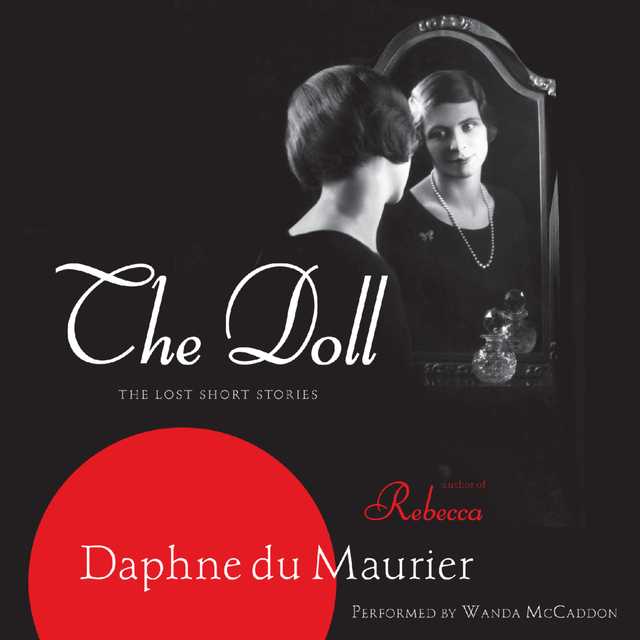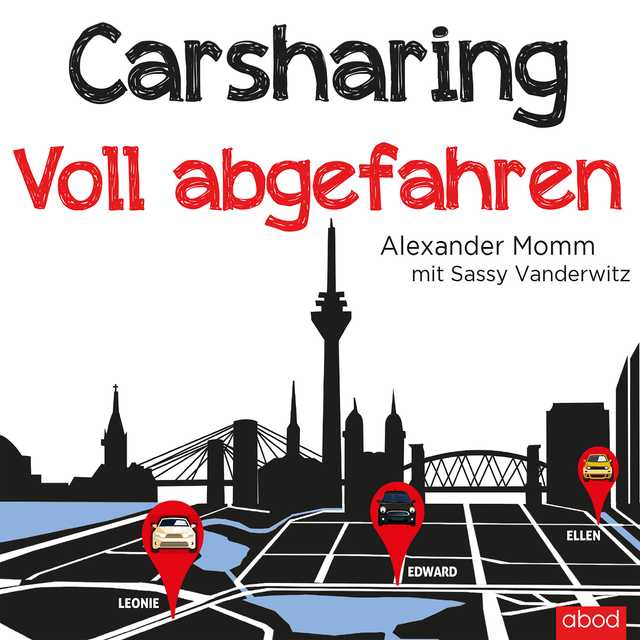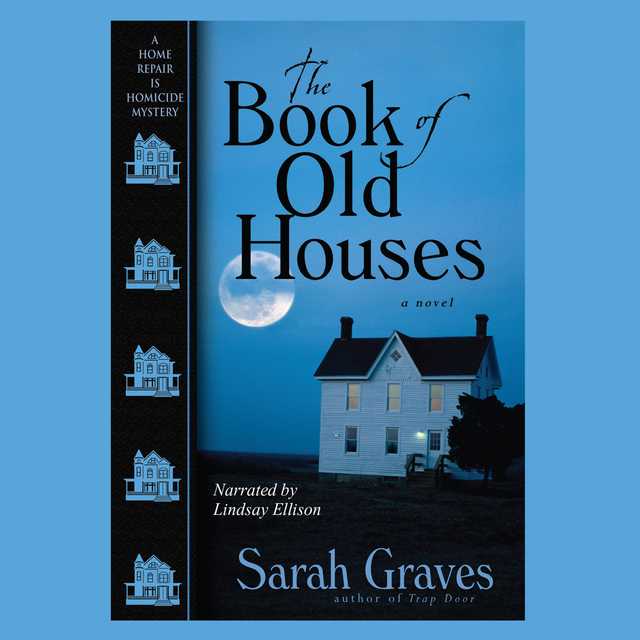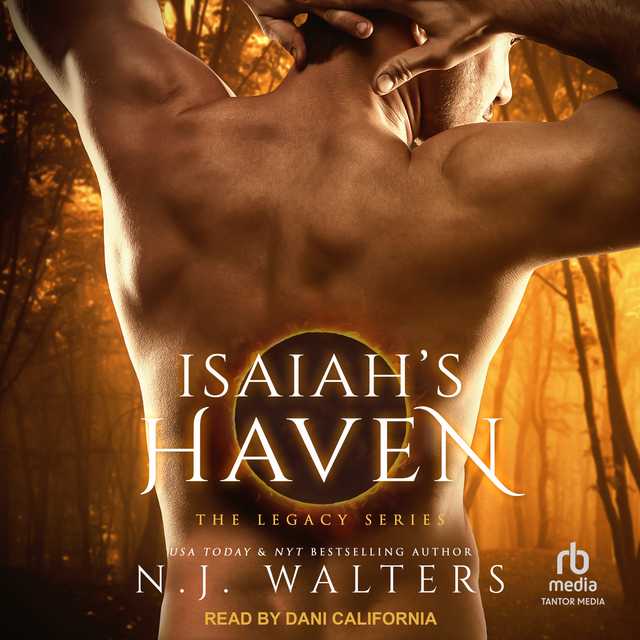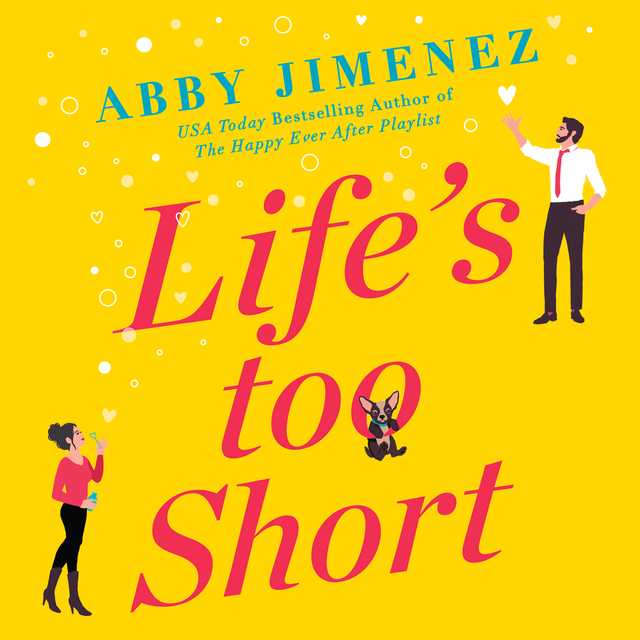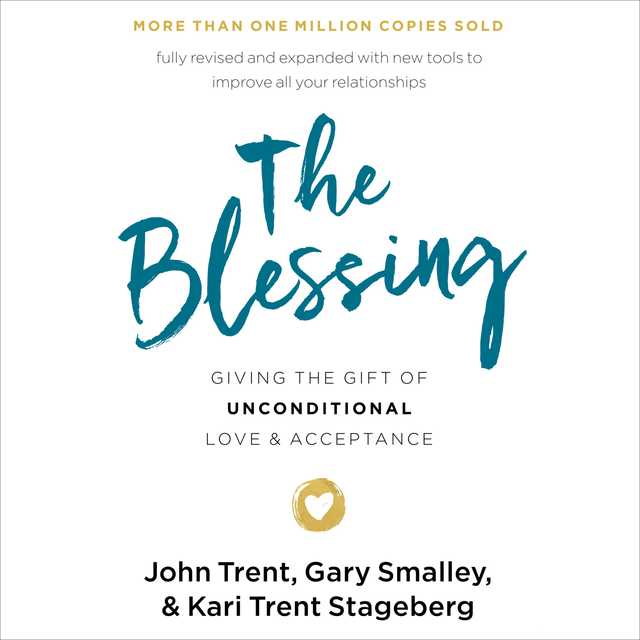The Doll Audiobook Summary
“Du Maurier is in a class by herself.”
—New York Times
Perhaps best known for her immortal gothic masterwork Rebecca–the basis for the Academy Award-winning motion picture directed by Alfred Hitchcock–Daphne de Maurier began her illustrious writing career penning short stories. In The Doll, thirteen of du Maurier’s early shorter fictional works have been collected–each story written before the author’s twenty-third birthday and some in print for the first time since the 1930s. Compelling tales of human foibles and tragic romance, the stories in The Doll represent the emergence of a remarkable literary talent who later went on to create Jamaica Inn, The Birds, and other classic works. This breathtaking collection of short fiction belongs on the bookshelf of every Daphne du Maurier fan.
Other Top Audiobooks
The Doll Audiobook Narrator
Wanda McCaddon is the narrator of The Doll audiobook that was written by Daphne Du Maurier
Daphne du Maurier (1907-1989) has been called one of the great shapers of popular culture and the modern imagination. Among her more famous works are The Scapegoat, Jamaica Inn, Rebecca, and the short story "The Birds," all of which were subsequently made into films–the latter three directed by Alfred Hitchcock.
About the Author(s) of The Doll
Daphne Du Maurier is the author of The Doll
More From the Same
- Author : Daphne Du Maurier
- Rebecca
- Jamaica Inn
- My Cousin Rachel
- The House on the Strand
- Mary Anne
- Publisher : HarperAudio
- Abraham
- American Gods [TV Tie-In]
- Dead Ringer
- House of Sand and Fog
- Prey
The Doll Full Details
| Narrator | Wanda McCaddon |
| Length | 5 hours 38 minutes |
| Author | Daphne Du Maurier |
| Publisher | HarperAudio |
| Release date | November 22, 2011 |
| ISBN | 9780062122483 |
Additional info
The publisher of the The Doll is HarperAudio. The imprint is HarperAudio. It is supplied by HarperAudio. The ISBN-13 is 9780062122483.
Global Availability
This book is only available in the United States.
Goodreads Reviews
Candi
October 05, 2015
This collection of some of Daphne du Maurier's earliest writing was very absorbing. I am quite glad I have had the opportunity to discover stories she conceived in the beginning stages of her very accomplished career. In these thirteen short stories du Maurier demonstrates her skill at depicting the very subtle nuances of human behavior and thinking. The overall tone is quite somber. She explores jealousy, egocentricity, obsession, manipulation, degeneracy, fear and foreboding, and disappointment. Miscommunication or lack of communication between men and women leads to misunderstanding, frustration, and the breakdown of relationships. The first story, "The East Wind", drew me in immediately with its eerie atmosphere and sense of danger: "… all the while the East Wind blew, tossing the grass, scattering the hot white sand, forcing its triumphant path through the white mist and the green waves like a demon let loose upon the island." The title story of the collection, "The Doll", was by far the creepiest and most disturbing of the bunch! A woman's obsession with a life-size doll prevents her from loving a real human being and drives her admirer to the brink of madness. One of my favorite stories, "Nothing Hurts for Long", introduces the reader to a woman eagerly anticipating the return of her husband after a short separation due to business obligations. She has such an aura of elation that everything around her is reflected in a similar fashion – from the canary singing gaily in its cage to the brilliant shining of the sun on the carpet. A conversation with a dejected friend followed by the delay of her husband's arrival causes our protagonist's mood to deteriorate. Likewise, everything else takes on a joyless quality. "She wandered over to the piano once more and began to strum… but her fingers were heavy and her voice a poor thin whisper of a thing that went flat and could not strike the right note. The canary in the cage pricked up his ears. He started his song, and soon it filled the room, deafening her, shrill and absurd, so loud that she flung the cover on to his cage in irritation." Couples falling in and out of love rapidly can be found in "Week-end" as well as "And His Letters Grew Colder." The decline towards and the depravity of prostitution are presented in "Piccadilly" and "Mazie". "The Happy Valley" is a bit different from this set in that it has more of a dream-like quality to it. A woman has an overwhelming sense of déjà vu and seems lost in the world around her, as if she belongs to another time and place. She becomes fearful and confused as a recurring dream appears to come true. Selfishness and manipulation are at the forefront of both "And Now to God the Father" and "The Limpet". A probably deranged woman blames her troubles on the belief that she puts others before herself in "The Limpet". Slowly destroying those around her by veiled manipulation, she does not seem to recognize that she has played a direct role in the decline of others and ultimately her own self. "Why is it that no matter how kind I am to people, how truly generous, it never seems to pay dividends? From start to finish I've put myself last and the happiness of others first. And yet, when I sit alone now, in the evenings, I seem to see faces around me… and their expressions aren't kind at all but somehow hunted. It's as if they want to be rid of me."As with most short story collections, some stories are better than others, but overall I enjoyed almost all of these. Daphne du Maurier's writing is always compelling. I would highly recommend this book if you are a fan of this brilliant author and would like to experience some of her earlier writing or if you appreciate short stories in general, particularly those that provide a very keen insight into human behavior.
Nandakishore
November 03, 2019
*Mild spoilers*These are the so-called "lost" stories of Daphne du Maurier - meaning uncollected and unpublished. Most of them, except the last tale, was written in the time period of 1926 - 1932: that is, while the author was in her late teens up to her mid twenties. Reading them, one would never feel that it was written by a writer just starting out in her career: the sheen and finish of the stories are such. But then, that's Daphne for you - whatever one might say about the literary quality of her writings (and there is some difference of opinion on it), as the purveyor the well-written tale, there are few to match her.I would call du Maurier's tales "dark romance" (romance in its old sense, not the new, narrow one). While the adventure, suspense, chivalry, and love are all present, they have the tendency to slip into territory frequented more by horror writers. Daphne very rarely crosses over fully in novels, but some of her short stories are really terrifying.Another trope which she loves to deal with is doomed love: and her lovers are not all that "lovable". People cheat and hurt each other constantly, and some characters are absolute monsters. There are very few love affairs in her novels which end with the partners living "happily ever after".In this collection, you will find plenty of such incompatible relationships. A Difference in Temperament shows a couple, besotted with each other yet feeling trapped and suffocated. Week-End shows the beginning, growth and end of a relationship in just a weekend. In Frustration, we find the adage "marry in haste, repent at leisure" illustrated in comic fashion. And His Letters Grew Colder is a tale of seduction and abandonment, told using the epistolary method - but what makes this tale special is that only letters from one side are shown. And in Nothing Hurts for Long, the entry of doubt into a loving relationship is chillingly portrayed.Daphne du Maurier is an expert in the creation of utterly despicable characters. Two such specimens adorn the pages of this book too - the Reverend James Holloway in And Now to God the Father and Dilly in Limpet. Both of them are ruthless manipulators - sociopaths, in fact - and one can only marvel at the author's skill in sketching them in such detail. One understands that evil need not be always supernatural in stories.The tales Piccadilly and Mazie show us the dirt beneath the glitter of our cities, through the eyes of prostitutes. The former is lighthearted in its black humour, while the latter is gut-wrenching in its sense of quite pathos.Tame Cat is about the desire of an aged lecher for a young girl. It would have been an ordinary story but for the innocence in the voice of the teenaged narrator, who does not see the web of lust about to envelop her, while it is clear to everyone else.East Wind is the odd one out in this collection. It is the oldest story, written when the author was just 19. It is a fable in the vein of Lord Dunsany, and not du Maurier-esque at all: but still, it is well-written and enjoyable.The Doll, the title story, is the only one which can be be called an out-and-out horror story. It is highly disturbing - but not all that well-written, in my opinion. We see here an author sharpening her quill for more effective future exploits.And now, we come to my favourite tale in this collection (which is why I left it to the last) - The Happy Valley. This the Daphne du Maurier we know and love. Starting out as the happy dream of a girl, with nary a sign of menace, the narrative slowly slips into a story throbbing with dread. It is a romance (of course!) but with doom lurking beneath its happy exterior. Long after we leave the story, a sense of apprehension will linger.A must read for all Daphne fans!
Lydia
November 23, 2011
Original review posted hereI don’t know which short story to gush about in this review. From the creepy, ick factor of the book’s title story, The Doll, to the heartbreaking loss experienced in East Wind, to the funny, but bittersweet tale of Frustration… I could go on and on.I think one story though really got to me. I loved them all for their tragic, gothic-like settings, stories and people.. but there is one story that is all letters that move from the thrilling moments of a new, forbidden love to the eventual falling away of the same. This is a repeated theme in these short stories – there’s no hugely romantic gestures, just simple, every day life laid bare and man’s shortcomings exposed in all sorts of heartbreaking detail.I know, however, that this is one of the best collections of short stories I’ve read. I can say this because this tiny little book inspires me to try my own hand at short stories, even though they’ll be no where near as perfect as du Maurier’s. Still.. these stories have shown me the endless possibilities that can be reached with just a few pages of story – and how much wealth there is in a backstory and future that are left untold.
Beth The Vampire
June 24, 2018
*OVERALL RATING 4 Stars*East Wind – 4 StarsThis was such a well written little piece that really gave the initial sense of isolation on the island, of the lost souls among it, and then the jubilation at having visitors from the outside world that brought them drink and showed them how to dance. The women discovered themselves, were tempted by things unknown to them, consumed by passion. But this comes at a cost, in this case with an axe to the head. Underneath all the jubilation, there was an approaching darkness, and undercurrent of evil that was brought in with the tide. The east wind changed everything for the islanders, and then sooner had it come, it was gone. The visitors not unlike the wind itself, leaving destruction in its wake. The Doll – 5 StarsDaphne Du Maurier was 20 when she wrote this story. It is so dark, and also before it’s time. The female is able to have sexual desire without the need of a man, which at the time it was written would have been unheard of. No wonder it was never published after she wrote it. The style was also interesting, with the narrative being from a notebook, which was found on a beach by another man who felt the writings were too important to be ignored. They tell the story of a man who falls in love with a musician by the name of Rebecca, but she toys with him, plays with his affection to the point that he is almost driven to insanity. Rebecca one night introduces her to Julio, a man sized doll who she seems to have a strange affinity with, and immediately the man knows there is something wrong and that Rebecca is out of his reach.‘Is it possible to love someone so much, that it gives one a pleasure, an unaccountable pleasure to hurt them?’It is such a fantastic story, so well written, and it all seems so immediate. I cannot help but think what became of the man and why he left his notebook to find. Meanwhile Rebecca seems to carry on, alone, but not needing anyone else to sustain her, to love her. There are likenesses between this Rebecca and the character by the same name in her later novel Rebecca, to the point where you can almost see the idea start to bud.And Now to God the Father – 3 StarsThe story of Reverend James Hollaway did not strike me as much as the other stories in this collection so far, but that is not to say that it was not enjoyable. It seems the good Reverend is only interested in his looks and his status in society, to the point where he ignores the plight of a young and vulnerable girl taken advantage of by a high society boy. Not very Christian at all. Maybe that was the point of the story. When the girl turns up dead after speaking to the Reverend, he appears unconcerned, instead feeling perhaps relief that a situation he was tasked to deal with has been resolved. He returns to his sermons, his social life, and his high status, without one care for this loss of life, completely undervaluing the girl and her feelings and even her position in society. Powerful men make the rules, and God seems to bend to their will, with religion nothing more than a tool used to control by those tasked to wield it.A Difference in Temperament – 4 StarsI absolutely loved this. Funny, it reminded me of my husband and myself in a way. The thoughts of both the man and the woman seemed so real, and I swear I have had something akin to that argument before. It was so fantastically written that the narrative switched from the husband to the wife so easily and almost without detection, yet each had their own voice.‘In the universe they were two stars, she far higher, burning with a steady light, but he flickering unsteadily, always a little ahead – and in the end falling to earth, and momentary streak in the sky.’Sometimes a relationship can envelope you so completely you are lost without the other person, yet you want something for yourself, which feels like a betrayal to the other, who seems to only want you. Your thoughts play tricks as you try to justify yourself, and in the end you end up concocting the most extreme situation where you lose everything as if your subconscious is trying to teach you a lesson for being so selfish. This story was so human, so real and relatable.Frustration – 3.5 StarsI think this was Daphne’s take on comedy as it was considerably lighter than the stories before it. A couple finally decide to get married, and after seven long years can finally be alone together. But after their wedding a comedy of errors ensues where their camping honeymoon is a disaster, their car and belongings get stolen, the wife loses her wedding ring down a drain, they are not allowed to stay in the same room together (and when the husband does try and get to his locks himself in his own room), and then ultimately get jobs where one works during the day and the other at night.There was a definite change in tone with the story, with no dark undercurrent that ultimately signalled doom, although perhaps this couple were just not meant to be.Piccadilly – 3 StarsThe majority of this story is told through Mazie’s eyes, as she related to a young newspaper boy what happened to her early in life and how she came to be, what I’m guessing is, a prostitute. She recalls the man who turned her to a life of crime, time she spent in prison, and then trying to find her way after she is released. She is a whimsical girl, taking her decisions from the signs around her, and her narrative is written so strongly.I did like the often sad tale of Mazie’s youth, but it just didn’t catch me like other stories in this collection. The end passage, when she is going down into the train tunnels and sees her boyfriend heading up the stairs the other way with another girl, was really symbolic and troubling, a sign of the lost girl and the man she protected who now has everything. But it was the last line that did to for me, it was so striking that I ended up reading it about three or four times.‘What was the sign?’ she said. ‘Why, it came straight from God written big above my head, in letters of fire at the end of the platform – “Follow The Red Light For Piccadilly”.’Tame Cat – 4 StarsPoor Baby, she is so naïve. I really felt for this protagonist, even though I could tell exactly where the story was going. Baby is coming back home from being at the ‘pension’ and she is all grown up, wishing to partake in the social activities of the city and have fun with her mother. Alas, as soon as the mother sees her beautiful daughter she is different towards her, cold and distant. Baby just wants to go and have some fun, which she finds with her Uncle John, who same call the tame cat. She recalls how often the Uncle is around, but doesn’t actually realise until right at the end that they have been lovers for years. Now Baby is around, Uncle John’s attentions start to shift towards Baby, and while she believes he is being a gentleman, she is entering into an affair that will drive a wedge between her and the mother.It is a story about growing up, realising that things are changing and the real world is different to what she had imagined it. This story had that dark undertone that I love in Daphne’s work. While Baby was so innocent and young spirited, there was around her a dark presence that seemed to haunt her despite her trying to deny its presence. Even at the end there was no relief for Baby, and her statement:'So being grown up was this: a sordid tissue of intimate relationships, complicated and vile.' Mazie – 3 StarsThis featured the same character from the Picadilly short story, but focused more on Mazie’s life as a prostitute. Again, the voice of the character in the narrative was really strong, but the story just didn’t resonate with me. To be honest, I can’t really remember too much of it now I look back. Mazie seemed to be going through her life, relishing in her dreams when she could, but with no real mind towards the future and what she could become as she ages and her dreams become further and further away.Nothing Hurts for Long – 4 StarsThis was a lovely detailed little piece about a woman waiting for her husband to return after three months in Berlin. She plans every part of the evening down to the food, flowers, and fire, and she sings as she dresses and positions everything just right. But things do not work out as she planned, and everything that was once beautiful has turned to ash in her eyes. Her friend May calls distressed, stating that her husband has left her after he returned from America and he was different. But yet, this could not happen to her, not when the love her and the husband have are so strong.That at such a young age Daphne could write such a tale that would likely ring true to a number of women, is truly amazing. She seems to get right to the crux of what it feels like, how everything turns so suddenly, how the need to please and love can be dashed and you try in vain to get some semblance of that back. It is also a testament to the changing nature of people, that our experiences change us. In some ways the woman is as trapped as the canary in a cage, singing alone in her house, soaking in the sun, never changing. There was a finality to the story as she contemplated that ‘nothing hurts for long,’ as even now she is preparing for the heartbreak that is likely to follow.Week-End – 3.5 StarsAnother more comedic story as a loved up couple go away for a weekend, and then at the end realise that they cannot stand each other and end up leaving in different directions. It spoke to the never ending changes that love brings, but also to the naivety of youth. The fact that the couple ended up giving each other cute little nicknames and ended up sick and blaming each other for their predicament was so sudden but seemed to natural. You could see the narrative slowly start to change, as even little things seemed to be given the spotlight. Daphne has such an eye for detail, and knows the smallest thing can change the feel of the story, and this one was done quite well.The Happy Valley – 4 StarsDo I sense a bit of the supernatural here? This was the first story in this collection that gave the impression of something paranormal occurring, as the woman seemingly saw into her own future. This whole story was so well written, from the beauty of the Valley, to the harshness of the city. The woman’s link to the valley and the cottage located within was so sweetly explored, with a great attention to detail.'Her dreaming mind, lost to the world and intensely alive in its own dream planet, would quieten and relax, would murmur in solitude, ‘I’m here, I’m happy, I’m home again.’It was a momentary state beyond heaven and earth, suspended in time between two strokes of a clock, and so would be vanished again, and she waking to the familiarity of her own bedroom and the beginning of another day.'This has to be one of my favourite pieces in this collection; it travelled so well and then had that slight twist at the end that really caught my surprise.And His Letters Grew Colder – 3 StarsWritten in the form of letters from a man, known as X, to his love, referred to as A, and how over the passage of time they grew different, more detached, colder. The transition was quite well done, as I was waiting for a slow deterioration, but yet it came on quite suddenly. That a man could actively seek out a woman, and then over time treat her so poorly was very telling, and while he made some notice of her actions when she is around him, I couldn’t help but feel these were likely warranted. So many times X would apologise for hurting A or treating her poorly, and she would forgive him, but then it seemed that once the novelty wore out he was on to bigger and better things, and then just to leave as suddenly as he did.Daphne has explore love in most of her stories, and focused on the changing nature of relationships, speaking to an experience that she could not have had at such as young age when she wrote the majority of these stories. But yet, she seems to grasp these feelings so well and explore them in an adult and sophisticated way (which I guess was a sign of her time). Perhaps it was the form of the story in letters that this one did not connect me as much to the characters or the story, or perhaps it was the one sided nature of them, but this one didn’t stick me as much as the others.The Limpet – 4 StarsThis was the longest story in the whole collection, and focused around Dilly reflecting on her past and the people that have come and gone from her life.'I seem to see faces around me, Father, Mother, Aunt Madge, Kenneth, Edwards, even poor Vermon Miles, and their expressions aren’t kind at all but somehow hunted. It’s as if they want to be rid of me. They can’t bear to be shadows. They’d like to get out of my memory and my life. Or is it that I want to be rid of them? I really don’t know. It’s too much of a muddle.'Dilly is a manipulator. She has conned and twisted everyone who has come into her life, from her own parents and making them question their decisions, to her husband and constantly making him stand up for himself when he didn’t want to, and her lover as she tries to convince him to attain more power. Everyone in her life leaves her, and it is kind of easy to see why. Then at the end she has the audacity to claim that she was never given everything; she was, but she just squandered it. Dilly is such a well-built character though, and this story needed this length in order to really explore the person that she is. The story flowed so well and was so easy to read, and even the base characters were so well developed. Daphne can work so well both in short-short story as well as the longer short story, and she can shape her writing seemingly however she wants. She had such a skill with the written word.
Ryan
January 12, 2012
I adore a well written short story more than I do the same writing in novel form. The skill needed to tell a finely honed story in such a small amount of space, when down well, never fails to impress me. This collection of thirteen stories blew me away, every single one of them made me laugh, shudder, and stare in amazement once I was done.I don't know what to type next or even what to say if someone were to ask me about this one. I think I would just stand there, tongue-tied, unable to fully express the way these stories made me feel. I would find myself being both fascinated and horrified at the same time. I don't even know which story to start with, because for me there wasn't one of them that failed to impress me. The title story, "The Doll", is one that because of the subject matter will never leave my brain. Rebecca and her doll will wander the corridors of my brain, doing things that I never even dreamed of, let alone want to do. The young lady in "The Tame Cat" who comes home after years at school, only to be caught up in a web of jealousy involving her mother and her mother's lover, will find a a few brain cells to move into and set up permanent residency. "Maize" and her fellow prostitutes forced to live in dreams and get back alley abortions, are frozen in time right behind my optic nerves. The manipulative harridan of "The Limpet" who just can't seem to understand why nobody loves her, made me pity and hate her at the same time. She has now whispers in my ear anytime she needs to whine about how unfair life is.I had only just read Rebecca for the first time a month or so ago, and Daphne du Maurier blew me away with her lushness of style. With these thirteen short stories, she is cemented in my brain as someone who I need to read more of, and I don't think I'll ever be disappointed.
Rikke
September 18, 2014
Haunting, claustrophic, powerful and surprising.I cannot believe that these short stories were written so early in Daphne du Maurier's carrier. They have no traces of insecurity, of inconsistency or even a vague hint of cliché. They are entirely original, fresh and haunting. I'll always describe du Maurier's work as haunting.The short stories are connected by a theme of obsession; unreliable narrators experiencing sinister events. My particular favorite was of course the title story where a man falls deeply in love with a cold and distant creature, but the last story in the collection surprised me as well. "The Limpet" is a tale almost so pitiful that it is indeed ironical. A girl sums up her life and wonders why everything went wrong, while she showcases a disastrous egoism and viciousness. She desperately tries to convince the reader that she is undeserving of the things that have happened to her - when in fact she ends up proving her own guilty role in the broken lives around her. “Then all at once she turned to me, her face pale, her eyes strangely alight. She said, “Is it possible to love someone so much, that it gives one a pleasure to hurt them? To hurt them by jealousy, I mean, and to hurt myself at the same time. Pleasure and pain, an equal mingling of pleasure and pain, just as an experiment, a rare sensation?”
Kirsty
August 21, 2011
Oh, how I love this book. The stories are creepy, cynical, tragic and funny all at the same time.
Simona
December 26, 2017
Dark, atmospheric, in some ways even amusing, without unnecessary/forced shock elements, this stories exposing human behavior and thinking in relation to the other people. Thirteen short stories, some are excellent, some slightly awkward, but I like them all, mainly due to the excellent dynamic tension between the characters, and I can easily qualify this collection among my favorite books I've read this year.
Frequently asked questions
Listening to audiobooks not only easy, it is also very convenient. You can listen to audiobooks on almost every device. From your laptop to your smart phone or even a smart speaker like Apple HomePod or even Alexa. Here’s how you can get started listening to audiobooks.
- 1. Download your favorite audiobook app such as Speechify.
- 2. Sign up for an account.
- 3. Browse the library for the best audiobooks and select the first one for free
- 4. Download the audiobook file to your device
- 5. Open the Speechify audiobook app and select the audiobook you want to listen to.
- 6. Adjust the playback speed and other settings to your preference.
- 7. Press play and enjoy!
While you can listen to the bestsellers on almost any device, and preferences may vary, generally smart phones are offer the most convenience factor. You could be working out, grocery shopping, or even watching your dog in the dog park on a Saturday morning.
However, most audiobook apps work across multiple devices so you can pick up that riveting new Stephen King book you started at the dog park, back on your laptop when you get back home.
Speechify is one of the best apps for audiobooks. The pricing structure is the most competitive in the market and the app is easy to use. It features the best sellers and award winning authors. Listen to your favorite books or discover new ones and listen to real voice actors read to you. Getting started is easy, the first book is free.
Research showcasing the brain health benefits of reading on a regular basis is wide-ranging and undeniable. However, research comparing the benefits of reading vs listening is much more sparse. According to professor of psychology and author Dr. Kristen Willeumier, though, there is good reason to believe that the reading experience provided by audiobooks offers many of the same brain benefits as reading a physical book.
Audiobooks are recordings of books that are read aloud by a professional voice actor. The recordings are typically available for purchase and download in digital formats such as MP3, WMA, or AAC. They can also be streamed from online services like Speechify, Audible, AppleBooks, or Spotify.
You simply download the app onto your smart phone, create your account, and in Speechify, you can choose your first book, from our vast library of best-sellers and classics, to read for free.
Audiobooks, like real books can add up over time. Here’s where you can listen to audiobooks for free. Speechify let’s you read your first best seller for free. Apart from that, we have a vast selection of free audiobooks that you can enjoy. Get the same rich experience no matter if the book was free or not.
It depends. Yes, there are free audiobooks and paid audiobooks. Speechify offers a blend of both!
It varies. The easiest way depends on a few things. The app and service you use, which device, and platform. Speechify is the easiest way to listen to audiobooks. Downloading the app is quick. It is not a large app and does not eat up space on your iPhone or Android device.
Listening to audiobooks on your smart phone, with Speechify, is the easiest way to listen to audiobooks.

